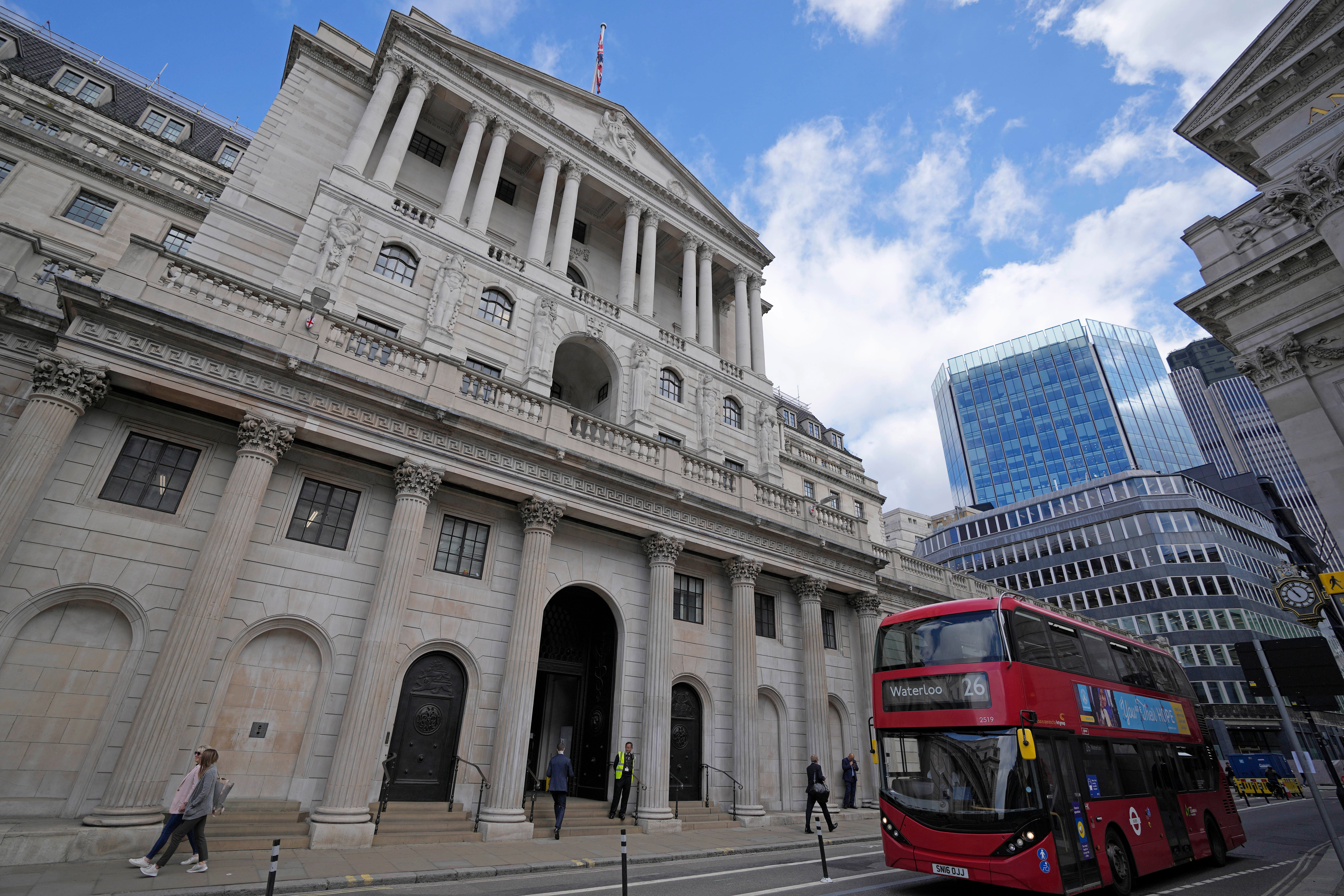Bank of England under pressure to aggressively raise rates
The Bank of England is under pressure to raise interest rates more aggressively amid concern that the quarter-percentage-point hike expected Thursday will do little to combat price increases that have pushed inflation to a 40-year high

Your support helps us to tell the story
From reproductive rights to climate change to Big Tech, The Independent is on the ground when the story is developing. Whether it's investigating the financials of Elon Musk's pro-Trump PAC or producing our latest documentary, 'The A Word', which shines a light on the American women fighting for reproductive rights, we know how important it is to parse out the facts from the messaging.
At such a critical moment in US history, we need reporters on the ground. Your donation allows us to keep sending journalists to speak to both sides of the story.
The Independent is trusted by Americans across the entire political spectrum. And unlike many other quality news outlets, we choose not to lock Americans out of our reporting and analysis with paywalls. We believe quality journalism should be available to everyone, paid for by those who can afford it.
Your support makes all the difference.The Bank of England is under pressure to raise interest rates more aggressively amid concern that the quarter-percentage-point hike expected Thursday will do little to combat price increases that have pushed inflation to a 40-year high.
While the United Kingdom’s central bank began raising interest rates earlier than its counterparts, the Bank of England is now trailing the U.S. Federal Reserve in the worldwide fight against inflation fueled by soaring food and energy prices.
The Fed raised its benchmark rate by three-quarters of a percentage point Wednesday, pushing it to a range of 1.5% to 1.75%. The Bank of England’s key rate is 1% following four consecutive quarter-point increases that began in December.
“It is quickly becoming apparent that more radical action is needed for the Bank of England to establish some sense of stability, because tinkering around the edges simply isn’t cutting it,” Michael Hewson, chief market analyst at CMC Markets UK, said in a note to clients.
The war in Ukraine has boosted food and energy prices as the fighting disrupts shipments of oil, natural gas, grain and cooking oil. That is adding to price increases that began last year as the global economy started to recover from the COVID-19 pandemic.
The Bank of England last month forecast that inflation would accelerate to more than 10% later this year after reaching 9% in April, already the highest since 1982. The bank’s inflation target is 2%.
Bank of England policymakers have been cautious about raising interest rates too quickly, arguing that many of the inflationary pressures facing the British economy are external and beyond the bank’s control.
But price increases are now becoming embedded in the economy, fueling demands for higher wages and slowing economic growth as consumers and businesses curtail purchases.
Figures released this week by the Office for National Statistics showed that economic output stagnated in February and shrank by 0.1% in March, raising concerns that Britain may be headed for a recession.
The World Bank last week downgraded its outlook for the global economy and raised concerns about the return of “stagflation” — the combination of high inflation and sluggish growth last seen in the 1980s.
Federal Reserve Chairman Jerome Powell acknowledged the challenges facing monetary policymakers when he spoke to reporters Wednesday.
“This is an extraordinarily unusual time, and we really don’t have a template or any experience of a situation like this,” he said. “And so, I think we have to be humble about our ability to understand the data. … We need to see more data. We need to be a little bit patient.”